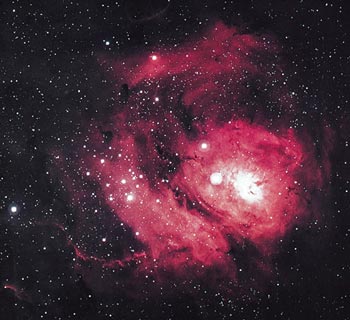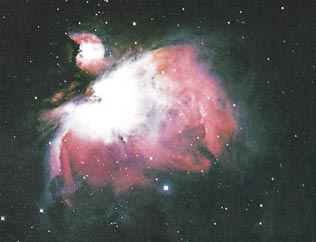What Is Quran? Al-Quran? Koran? Qur'an?
The Qur’an (English pronunciation: /kɒˈrɑːn/ korr-AHN; Arabic: القرآن al-qur’ān, IPA: [qurˈʔaːn], literally “the recitation”) is the main religious text of Islam, also sometimes transliterated as Quran, Kuran, Koran, Qur’ān, Coranor al-Qur’ān. It is widely regarded as the finest piece of literature in the Arabic language. Muslims believe the Qur’an to be the verbal divine guidance and moral direction for mankind. Muslims also consider the original Arabic verbal text to be the final revelation of God.
(English pronunciation: /kɒˈrɑːn/ korr-AHN; Arabic: القرآن al-qur’ān, IPA: [qurˈʔaːn], literally “the recitation”) is the main religious text of Islam, also sometimes transliterated as Quran, Kuran, Koran, Qur’ān, Coranor al-Qur’ān. It is widely regarded as the finest piece of literature in the Arabic language. Muslims believe the Qur’an to be the verbal divine guidance and moral direction for mankind. Muslims also consider the original Arabic verbal text to be the final revelation of God.
Muslims believe that the Qur’an was revealed from God to prophet Muhammad (pbuh) through the angel Gabriel from 610 to 632 CE, the year of his death. Muhammad (pbuh) recited the Qur’an to his followers, numbering tens of thousands, who recited after him, until they had memorised it. He also dictated it to his scribes (Muhammad was illiterate) who wrote down its verses during his life. Shortly after Muhammad's death the Qur’an was established textually into a single book form by the order of the first Caliph Abu Bakr. During the reign of Uthman, the third Caliph, the Qur'an was standardised: Uthman compiled Abu Bakr's copy of the Qur’anic text, set it in the standard Quraish dialect called Fus'ha (Modern Standard Arabic), made several copies of the now standardised text and burned the non-standard texts. Muslims hold the present form of the Qur’an as exactly the same as that revealed to Muhammad (pbuh). Most scholars and historians accept the present day Qur'an is the original version compiled by Abu Bakr shortly after Muhammad's death.
Muslims regard the Qur’an as the main miracle of Muhammad (pbuh), as proof of his prophethood, and as the culmination of a series of divine messages. These started, according to Islamic belief, with the messages revealed to Adam (pbuh), regarded in Islam as the first prophet, and continued with the Suhuf Ibrahim (Scrolls of Abraham (pbuh)), the Tawrat (Torah orPentateuch) of Moses (pbuh), the Zabur (Tehillim or Book of Psalms) of David (pbuh), and the Injil (Gospel) of Jesus (pbuh). The Qur'an assumes familiarity with major narratives recounted in Jewish and Christian scriptures, summarising some, dwelling at length on others, and, in some cases, presenting alternative accounts and interpretations of events. The Qur'an describes itself as a book of guidance, sometimes offering detailed accounts of specific historical events, and often emphasising the moral significance of an event over its narrative sequence.
Chapters in the Qur'an
- Al-Fatiha (The Opening)
- Al-Baqara (The Heifer, The Calf)
- Al-i-Imran (The Family of Imran)
- An-Nisa (The Women)
- Al-Ma'ida (The Table Spread, The Table)
- Al-An'am (The Cattle)
- Al-A'raf (The Heights)
- Al-Anfal (The Spoils of War)
- At-Tawba (The Repentance)
- Yunus (Junus or Jonah)
- Hud (Hud, sometimes thought to be Eber)
- Yusuf (Yousef or Joseph)
- Ar-Ra'd (The Thunder)
- Ibrahim (Ibrāhīm or Abraham)
- Al-Hijr (The Rocky Tract, Al-Hijr, The Stoneland, The Rock City)
- An-Nahl (The Honey Bees)
- Al-Isra (Isra, The Night Journey or The Children of Israel)
- Al-Kahf (The Cave)
- Maryam (Maryam or Mary)
- Ta-Ha (Ta-Ha)
- Al-Anbiya (The Prophets)
- Al-Hajj (The Pilgrimage, The Hajj)
- Al-Mu’minoon (The Believers)
- An-Nur (The Light)
- Al-Furqan (The Criterion, The Standard)
- Ash-Shu'ara (The Poets)
- An-Naml (The Ant, The Ants)
- Al-Qasas (The Narrations, The Stories)
- Al-Ankabut (The Spider)
- Ar-Rum (The Romans)
- Luqman (Luqman)
- As-Sajda (The Prostration, Worship, Adoration)
- Al-Ahzab (The Clans, The Confederates, The Combined Forces)
- Saba (Sheba)
- Fatir (The Originator)
- Ya Sin (Ya-seen)
- As-Saaffat (Those Who Set The Ranks, Drawn Up In Ranks)
- Sad (The Letter Sad)
- Az-Zumar (The Crowds, The Troops, Throngs)
- Ghafir, Al Mu'min (The Forgiver (God))
- Fussilat (Expounded, Explained In Detail)
- Ash-Shura (The Consultation)
- Az-Zukhruf (The Gold Adornments, The Ornaments Of Gold, Luxury)
- Ad-Dukhan (The Smoke)
- Al-Jathiya (The Kneeling Down, Crouching)
- Al-Ahqaf (Winding Sand-tracts, The Wind-curved Sandhills, The Dunes)
- Muhammad (Muhammad)
- Al-Fath (The Victory, Conquest)
- Al-Hujurat (The Private Apartments, The Inner Apartments)
- Qaf (The Letter Qaf)
- Adh-Dhariyat (The Wind That Scatter, The Winnowing Winds)
- At-Tur (The Mount)
- An-Najm (The Star)
- Al-Qamar (The Moon)
- Ar-Rahman (The Most Gracious, The Beneficent, The Mercy Giving)
- Al-Waqi'a (The Inevitable, The Event)
- Al-Hadid (The Iron)
- Al-Mujadila (The Pleading, She That Disputeth, The Pleading Woman)
- Al-Hashr (The Mustering, The Gathering, Exile, Banishment)
- Al-Mumtahina (The Examined One, She That Is To Be Examined, Examining Her)
- As-Saff (The Ranks, Battle Array)
- Al-Jumuah (The Congregation, Friday)
- Al-Munafiqun (The Hypocrites)
- At-Taghabun (The Cheating, The Mutual Loss and Gain, The Mutual Disillusion, Haggling)
- At-Talaq (Divorce)
- At-Tahrim (The Prohibition)
- Al-Mulk (The Dominion, Sovereignty, Control)
- Al-Qalam (The Pen)
- Al-Haaqqa (The Sure Reality)
- Al-Maarij (The Ways of Ascent, The Ascending Stairways)
- Nuh (Nūḥ or Noah)
- Al-Jinn (The Spirits, The Jinn, The Demons)
- Al-Muzzammil (The Enfolded One, The Enshrouded One, Bundled Up)
- Al-Muddathir (The One Wrapped Up, The Cloaked One, The Man Wearing A Cloak)
- Al-Qiyama (The Day of Resurrection, Rising Of The Dead)
- Al-Insan (Man, Human)
- Al-Mursalat (Those Sent Forth, The Emissaries, Winds Sent Forth)
- An-Naba (The Great News, Tidings, The Announcement)
- An-Naziat (Those Who Tear Out, Those Who Drag Forth, Soul-snatchers)
- Abasa (He Frowned)
- At-Takwir (The Folding Up, The Overthrowing)
- Al-Infitar (The Cleaving Asunder, Bursting Apart)
- Al-Mutaffifin (The Dealers in Fraud, Defrauding, The Cheats, Cheating)
- Al-Inshiqaq (The Rending Asunder, The Sundering, Splitting Open)
- Al-Burooj (The Mansions Of The Stars, Constellations)
- At-Tariq (The Night-Visitant, The Morning Star, The Nightcomer)
- Al-'Ala (The Most High, Glory To Your Lord In The Highest)
- Al-Ghashiya (The Overwhelming Event, The Pall)
- Al-Fajr (The Break of Day, The Dawn)
- Al-Balad (The City, This Countryside)
- Ash-Shams (The Sun)
- Al-Lail (The Night)
- Ad-Dhuha (The Glorious Morning Light, The Forenoon, Morning Hours, Morning Bright)
- Al-Inshirah (The Expansion of Breast, Solace, Consolation, Relief)
- At-Tin (The Fig, The Fig Tree)
- Al-Alaq (The Clinging Clot, The Clot, Recite)
- Al-Qadr (The Night of Power or Honor, The Night of Decree, Power, Fate)
- Al-Bayyina (The Clear Proof, Evidence)
- Az-Zalzala (The Earthquake)
- Al-Adiyat (The Courser, The Chargers)
- Al-Qaria (The Striking Hour, The Great Calamity, The Stunning Blow, The Disaster)
- At-Takathur (The Piling Up, Rivalry In World Increase, Competition)
- Al-Asr (The Time, The Declining Day, Eventide, The Epoch)
- Al-Humaza (The Scandalmonger, The Traducer, The Gossip monger)
- Al-Fil (The Elephant)
- Quraysh (Quraysh)
- Al-Ma'un (The Neighbourly Assistance, Small Kindnesses, Almsgiving, Have You Seen)
- Al-Kawthar (Abundance, Plenty)
- Al-Kafirun (Those Who Reject Faith, The Disbelievers, The Kafirs)
- An-Nasr (The Help, Succour, Divine Support, Victory)
- Al-Masadd (The Plaited Rope, The Palm Fibre)
- Al-Ikhlas (Purity of Faith, The Fidelity)
- Al-Falaq (The Daybreak, Dawn)
- Al-Nas (Mankind)


